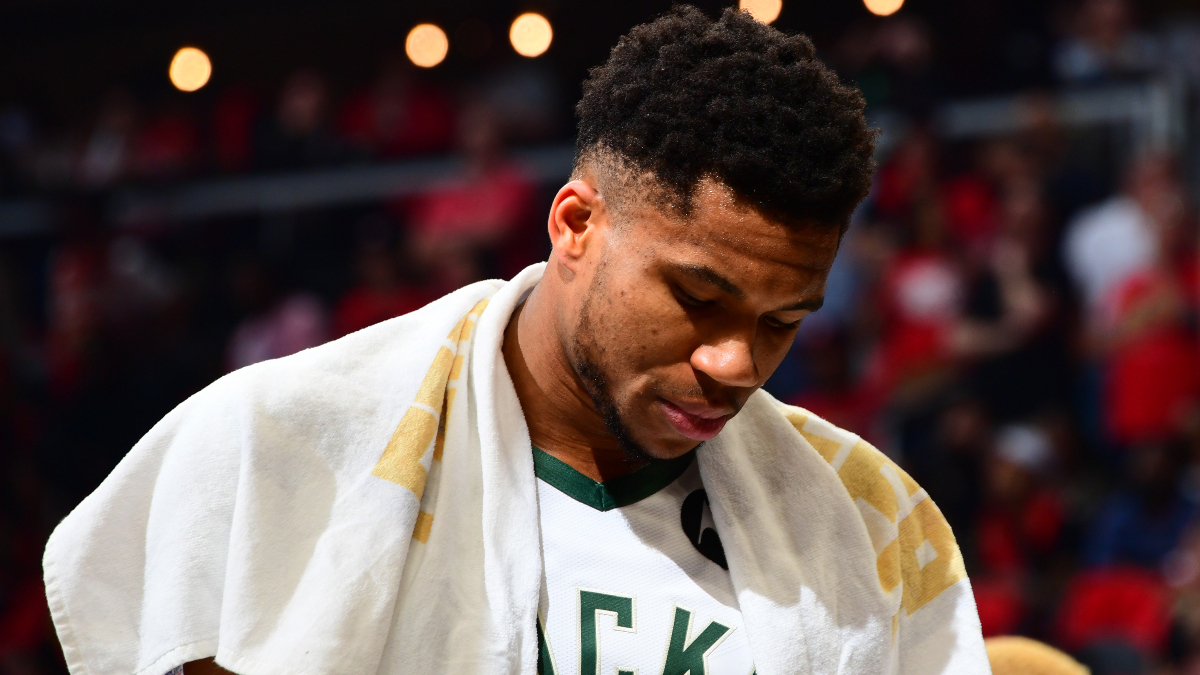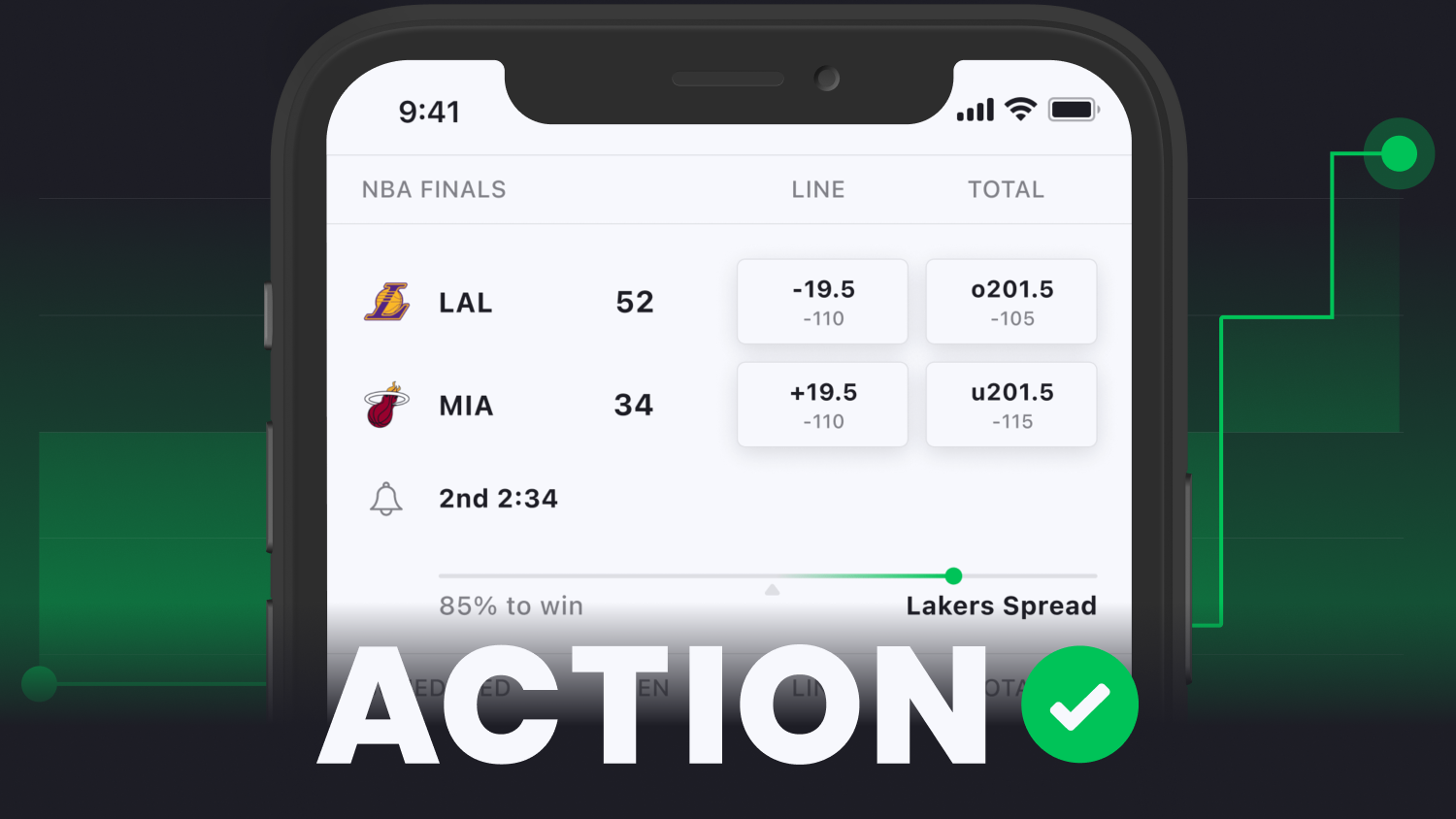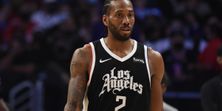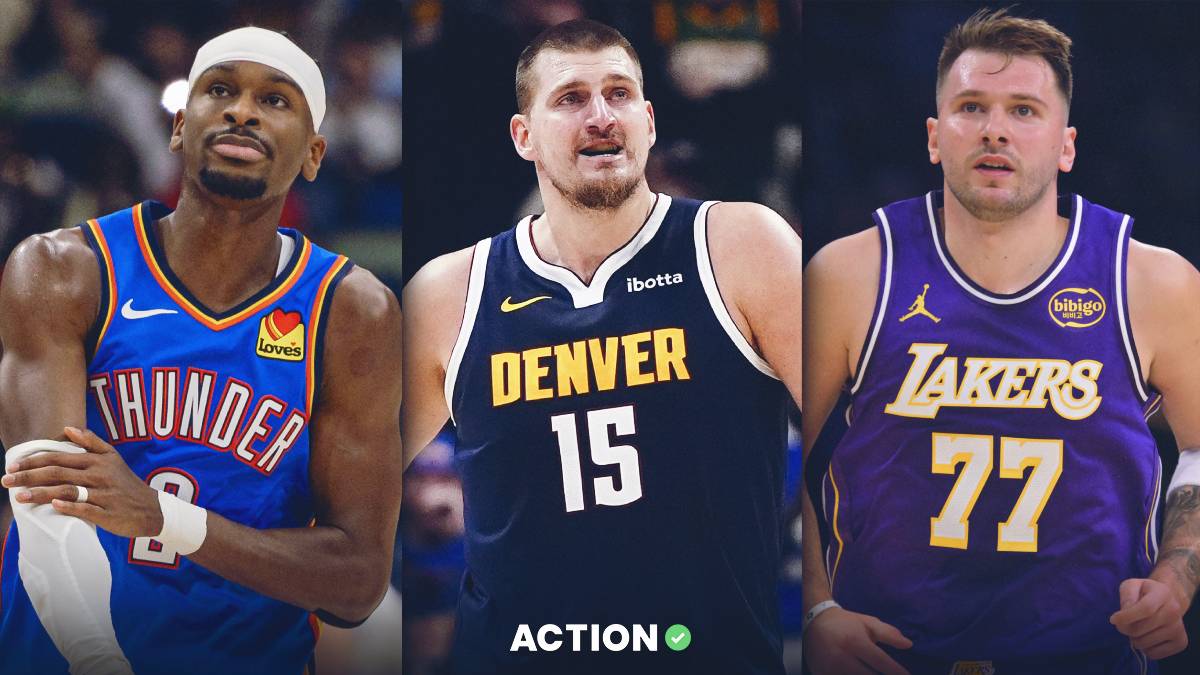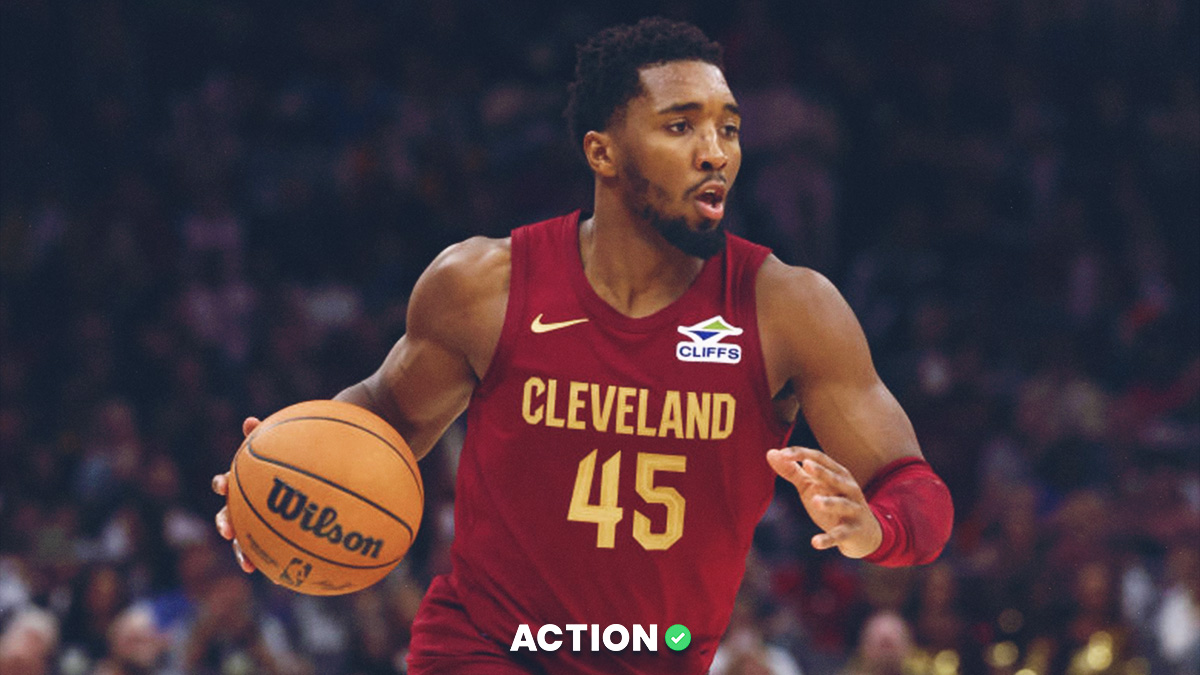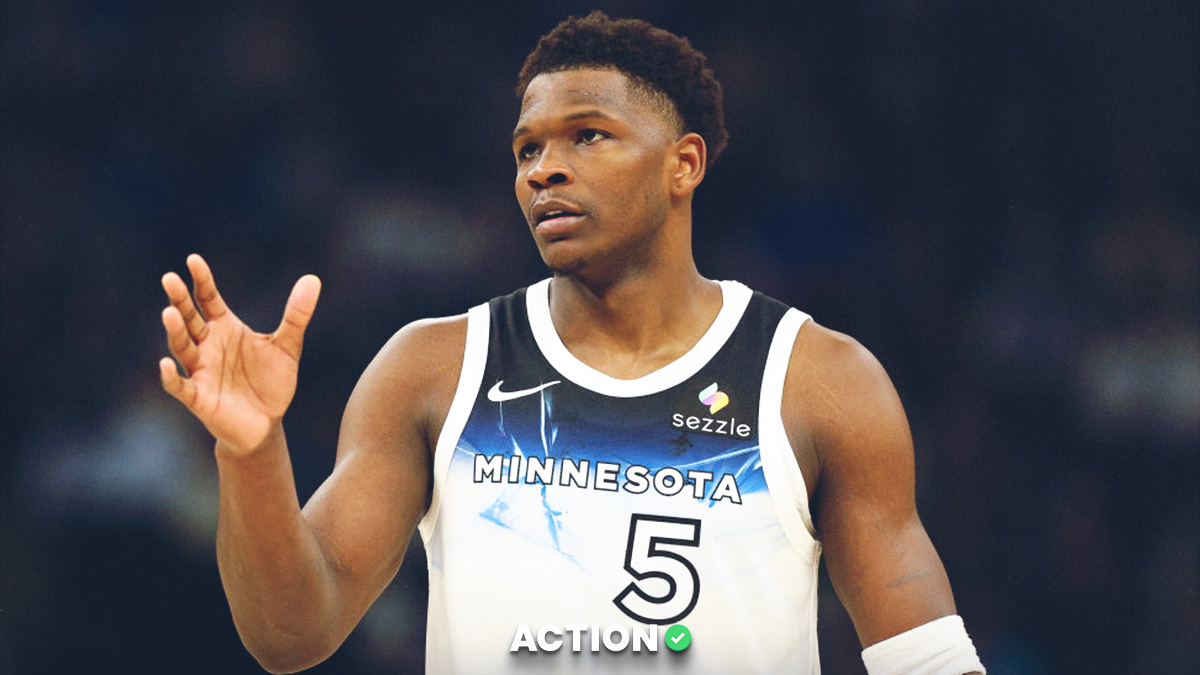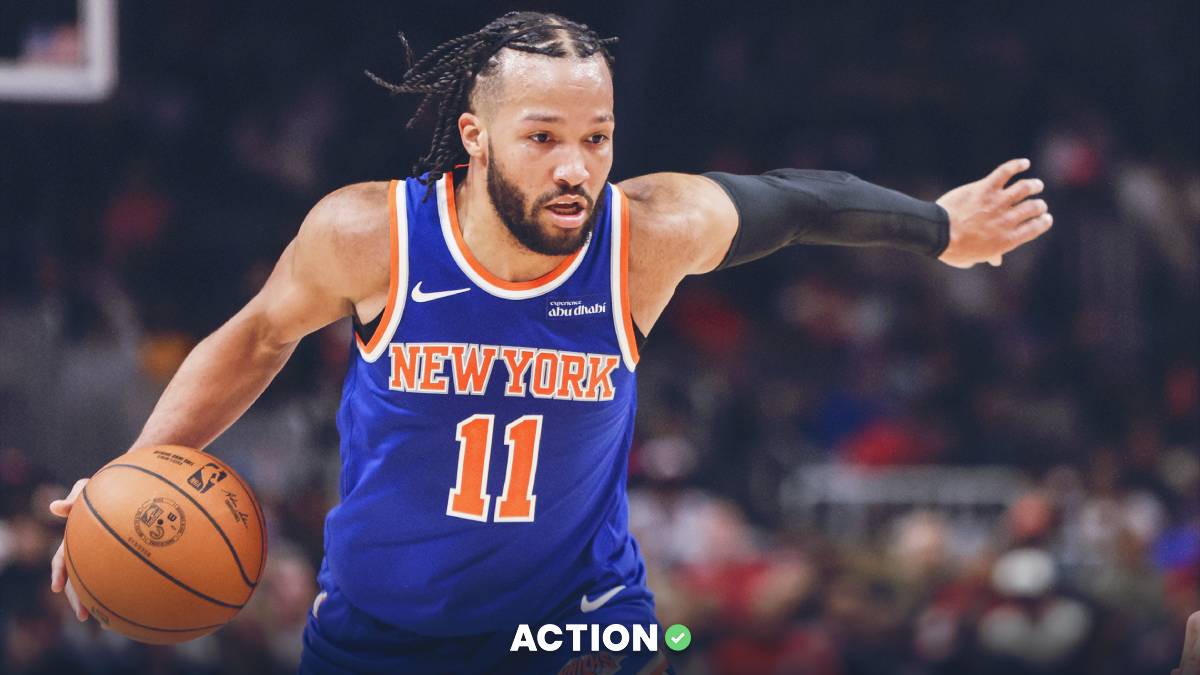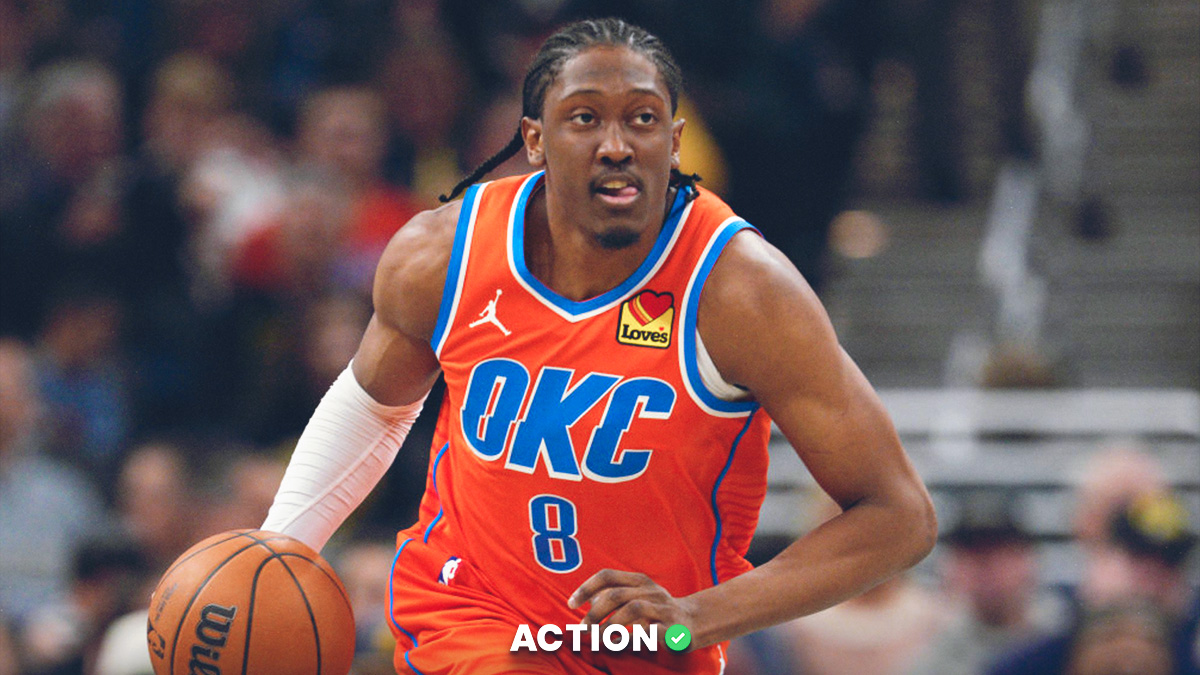My editor, Malik Smith, put the situation best.
"Giannis won't be the last guy to get hurt this season, based on how this has gone."
Giannis Antetokounmpo avoided structural damage to his knee when he hyperextended it in Game 4 vs. the Atlanta Hawks. He's sidelined for Game 5 and there's no way to know if he'll play again this series.
On the one hand, there has to be a consideration of Antetokounmpo's long-term health. He signed the max extension with the Bucks and they have more shots at a title even if this might be their best chance.
On the other, Antetokounmpo is a notorious competitor and lunatic when it comes to his work ethic. He'll likely want to play if he's at all able. But allowing him to play risks further injury, and further injury damages the trust between the player and the organization, which can manifest itself in free agency or trade demands.
The risk calculus for the Bucks is fraught.
But the larger story continues to be that these NBA Playoffs are almost post-apocalyptic in terms of injuries.
The Phoenix Suns deserve every bit of credit for advancing to their first Finals in 28 years. You play who's in front of you, and the Suns have been brilliant all season.
It is not meant to take anything away from Phoenix's performance, but it's worth at least mentioning that the Suns faced the Los Angeles Lakers without Anthony Davis and with Kentavious Caldwell-Pope banged up. Then they swept the Denver Nuggets without Jamal Murray and Will Barton (save for the final two games of the series).
Finally, they beat the LA Clippers in the conference finals, who were without Kawhi Leonard and Serge Ibaka, then later Ivica Zubac who finished with the best on-court net rating of any Clipper.
On the other side of the bracket, the Bucks themselves advanced past the Miami Heat without Victor Oladipo, then the Nets who didn't have James Harden for the first part of the series, and lost Kyrie Irving at the tail end. A superteam isn't quite as super when the star is on the sidelines.
On Tuesday, the Bucks lost to the Hawks without Trae Young and Deandre Hunter, while the Bucks themselves were without Donte DiVincenzo and later, Antetokounmpo.
And that's just the start of the injury list in these playoffs.
THE CRUELTY OF UNAVOIDABLE FATE
It's easy to blame everything on the NBA's schedule, the product of a desperate attempt to recoup money and keep the league's financial status humming at a high level.
But Young was injured in a freak incident where he stepped on an official's foot.
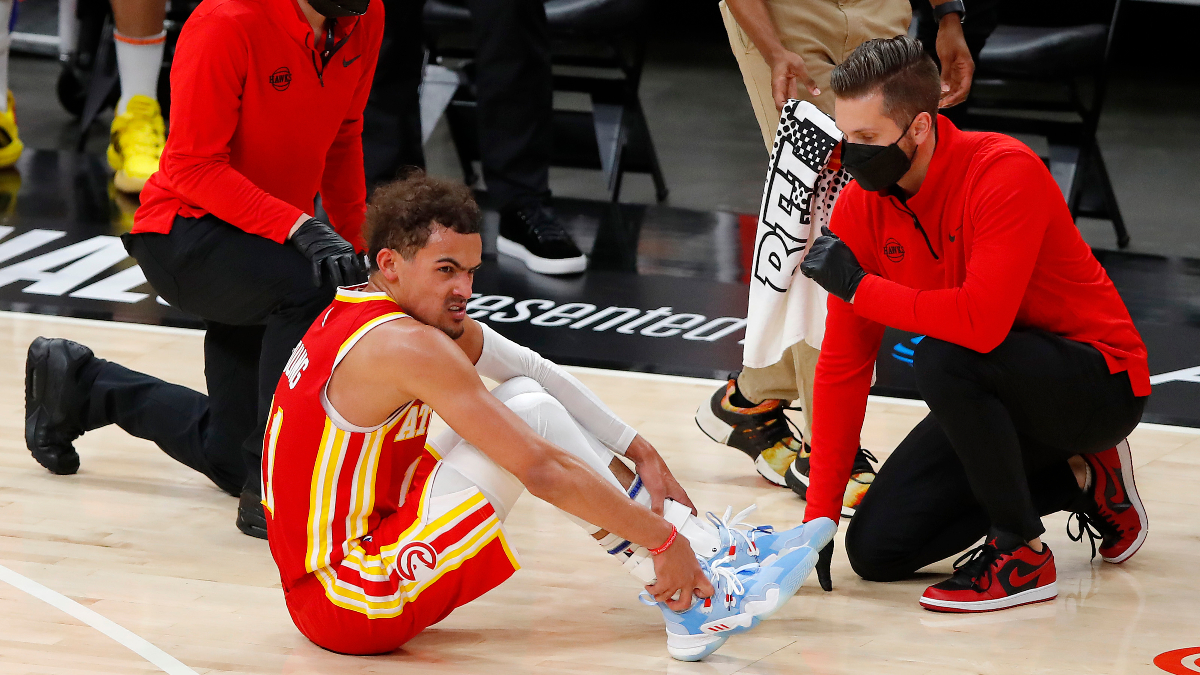
Irving twisted an ankle going for a rebound with Antetokounmpo beneath him. Harden had previously been an absolute rock in terms of availability and had a lower usage in Brooklyn compared to Houston. But he only played 44 regular-season games and his injury lingered into the postseason.
Anthony Davis' list of injuries in his career is longer than even his impressive list of accolades and accomplishments.
Meanwhile, we can always look back at playoff runs and find situations where teams have taken advantage of injury situations. The Nuggets were without Barton vs. the Lakers last year, and in the Finals, Goran Dragic and Bam Adebayo were pretty clearly injured for the Heat.
The Toronto Raptors won in 2019 with Kevin Durant and Klay Thompson injured. The 2018 Golden State Warriors slipped by the Rockets after Chris Paul was injured. The 2017 Cleveland Cavaliers made the Finals after Isaiah Thomas suffered his hip injury, and the Warriors got past the San Antonio Spurs in the conference finals after Kawhi Leonard was injured.
The 2016 Cavaliers completed their miracle comeback with Stephen Curry less than 100%, Andrew Bogut out for the final three games (which meant disastrous Festus Ezeli and Anderson Varajao minutes) and Draymond Green suspended for Game 4.
The 2015 Warriors beat the Cavs without Kyrie Irving and Kevin Love. The 2014 Spurs beat the Oklahoma City Thunder after Serge Ibaka missed the first two games of the conference finals. The 2013 Spurs never faced the Thunder after Russell Westbrook went down with injury.
You get the picture.
There are always an injury that shapes the NBA Playoffs, and the playoffs are often times as much a battle of attrition as X's and O's.
EXCEPTIONALLY DEPRESSING
Still, it's difficult not to wonder about the impact of the season's condensed schedule on the mayhem we've seen. Going into the season, several NBA executives point blank said they were worried about "soft tissue" injuries.
"Our training staffs have told us those risks, which are always high, are even bigger under the strain of this schedule," a general manager told me back in December.
For all the freak and contact injuries that have unfolded, there are also those soft tissue injuries that can be attributed to the duress from the schedule. Leonard's sprained ACL, Murray's torn ACL, and Joel Embiid's torn meniscus are just a few.
"It wasn't just the amount of games," a team assistant told me this week. "It was that you still had so much travel. We have all this data that says travel compounds and makes the risks for these injuries worse, and they piled all that normal travel on top of a tightened schedule."
Ultimately, the league's injury plague wasn't simply the result of the NBA starting the season in December and trying to wrap before the summer Olympics in July.
It was also bad luck and the normal amount of freak injuries on top of a higher injury risk due to the schedule. There's no way to prove that the schedule caused more injuries.
The league disputes that the injury rate is higher this season than last year:
More from NBA spokesman Mike Bass to @NYTSports on criticism of this season's schedule registered today by LeBron James:
"While injuries are an unfortunate reality of our game, we recognize the enormous sacrifices NBA players and teams have made to play through this pandemic.”
— Marc Stein (@TheSteinLine) June 16, 2021
In the two weeks since, we've seen Ivica Zubac, Bogdan Bogdanovic, Antetokounmpo, and Hunter also suffer injuries.
"WE KNEW THE DEAL"
LeBron James openly criticized the league's decision to build the schedule and start the season as soon as it did:
RIM REST rest before starting back up. 8, possibly 9 ALL-STARS has missed Playoff games(most in league history). This is the best time of the year for our league and fans but missing a ton of our fav players. It’s insane. If there’s one person that know about the body and how it
— LeBron James (@KingJames) June 16, 2021
The response to that, of course, is that the decision to set the schedule wasn't unilateral.
The league did not just dictate this to the player's union, it was agreed upon with the NBPA. No one was happy about it, but the financial alternatives were presented as untenable otherwise.
"You know why I haven't complained about how brutal this season has been?" one executive asked this week. "Because we knew the deal. We knew the injury risks would be higher and the toll not just physically, but mentally, would be higher. But the costs, not just this year, but long-term, for the league and the players, was too much. We knew what this was going to be."
Ad Age reported this week that the NBA brought in a record $1.46 billion in sponsorship money this season, even with a shortened season. CNBC reported this week that the league's next price tag for their media deals, despite load management, disappointing regular season ratings, and other issues, could be as much as $8 billion per season, up from $2.6 billion per year currently.
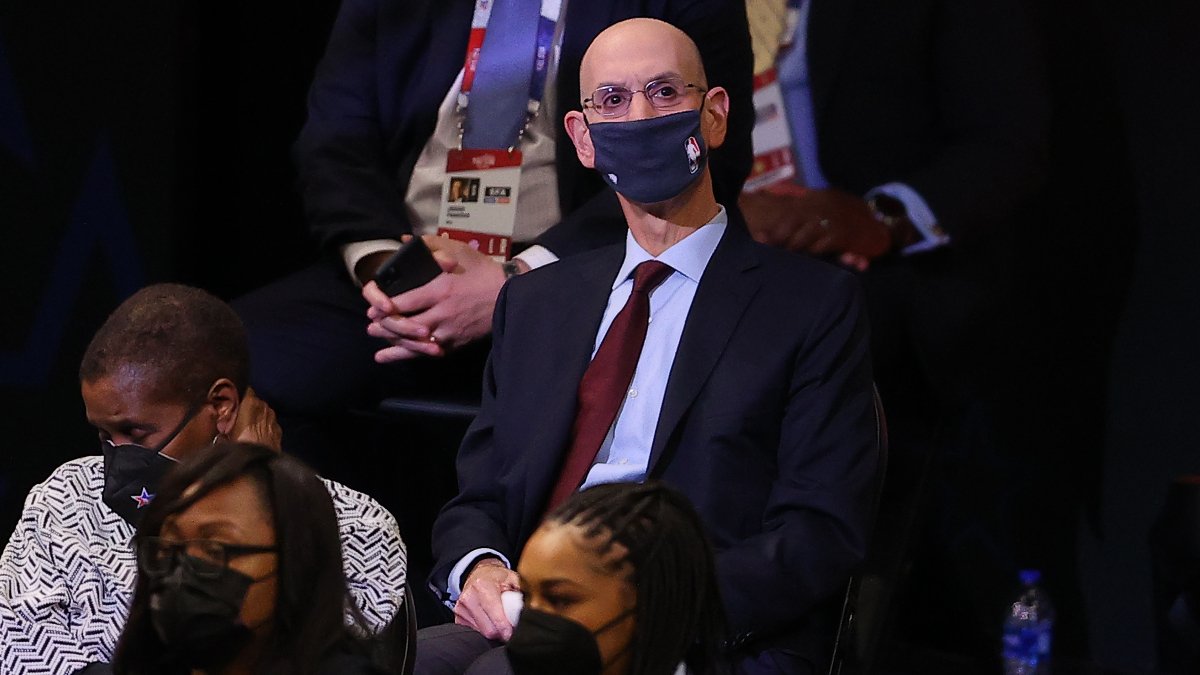
The NBA has offset some of the losses from the pandemic while keeping the 70 regular season games required for RSN fees.
These playoffs may feel compromised, and certainly, the decision to cram 72 games and full playoffs in a seven-month period to both start on Christmas and end before the Olympics is a questionable one.
Delaying the start of the season or extending the season later and accepting a gradual return to normal mid-October start times could have provided a better product with at the very least less risk for injuries.
But the NBA will crown its champion without any asterisk applied in two weeks, the storylines from these playoffs have introduced new stars like Young and the league's financial health has been secured going forward.
The cost on players and the quality of the games has been high. The results have been favorable.
Ultimately, everyone with a stake in this season knew what they were getting into, and got exactly what they knew they would.


